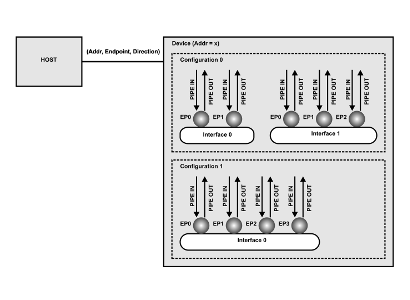| |
- USB Kernel Driver Fundamentals
- Introduction to the WDF Framework
- WDF Kernel Development Environment
- KMDF/UMDF Objects and Methods
- USB WDF Initialization
- USB WDF Interfaces
- URB Kernel Driver Communication
- USB Transfer (Control, Bulk, Interrupt, Isochronous)
- USB Pipe Handling (IN, OUT, Control)
- USB PNP / Power Management
- Kernel Driver Installation and INF Files
|

|
|
The programming of USB Kernel Drivers under Windows was long reserved for experienced kernel developers.
With the introduction of the Kernel Mode Driver Framework (KMDF), the development of USB kernel drivers was significantly simplified,
allowing developers to create high-quality drivers more efficiently and securely.
USB is now established as the standard interface for PCs. Originally developed to reduce the cabling at the back of the PC,
USB requires the use of HUBs due to its star topology. Up to 127 devices can be connected to a USB bus simultaneously.
If necessary, an additional HOST can be added to the system. USB is a serial bus that operates HOST-controlled – there can only be one HOST per bus.
The HOST takes full control over transactions and bandwidth. Unlike traditional bus drivers (e.g., PCI),
a USB driver never communicates directly with the hardware. Instead, it creates an instance of the USB Request Block (URB), which is passed to the
operating system's bus driver. USB supports Plug & Play with dynamically loadable and unloadable drivers,
so the user simply plugs in a device, and the driver takes over the communication.
Our USB Kernel Driver course offers practical examples and exercises to provide an in-depth insight into driver development under Windows.
The training imparts knowledge in a neutral and product-independent manner and covers the most important kernel driver models: WDM, KMDF, and UMDF.
Key topics include the basics of USB, the WDF framework, setting up the development environment, KMDF/UMDF objects,
initialization, interface and pipe handling, USB transfers, as well as Plug & Play and Power Management.
The training is aimed at software developers with experience in Windows kernel driver programming who want to deepen their knowledge of USB driver development.
|